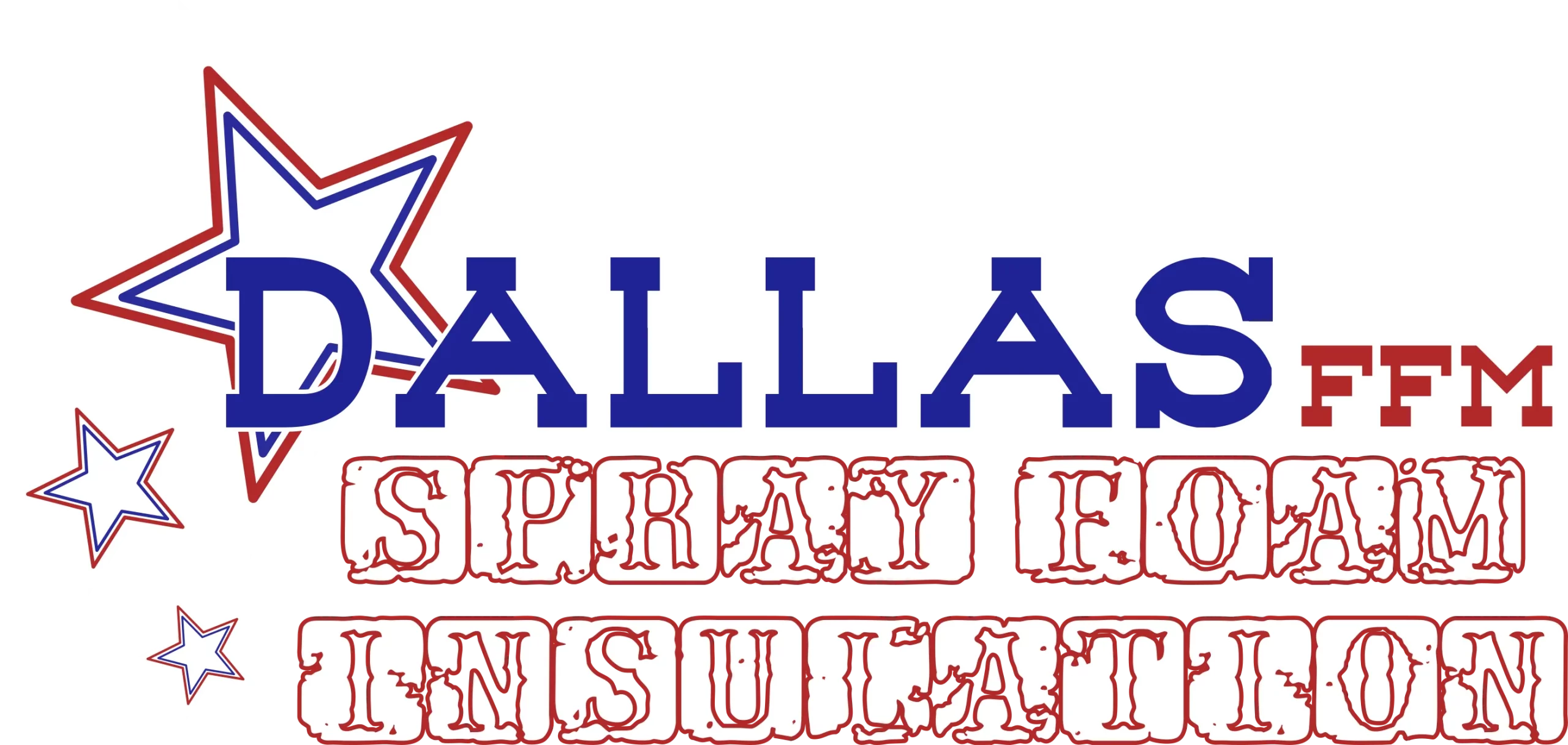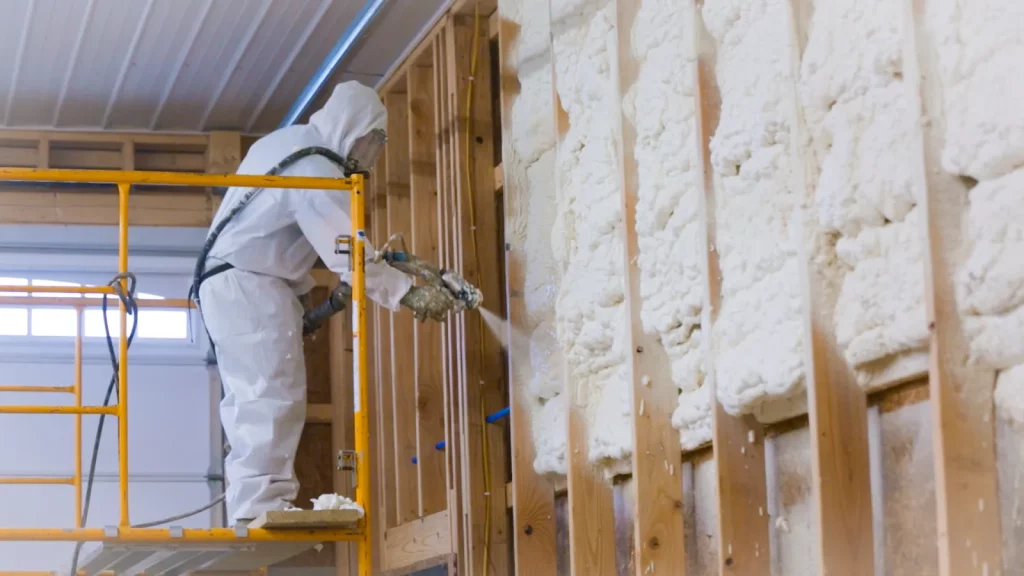Spray foam insulation has gained popularity as an energy-efficient solution for residential and commercial buildings. However, many homeowners and property managers in Dallas, TX wonder whether it is the right choice for their insulation needs. This article explores the benefits, drawbacks, costs, and considerations to help determine whether spray foam insulation is a good investment.
What Is Spray Foam Insulation?
Spray foam insulation is a polyurethane-based material that expands upon application, filling gaps and creating an airtight seal. It comes in two primary forms:
- Open-cell spray foam: Lighter and more flexible, offering soundproofing benefits but with a lower R-value (thermal resistance).
- Closed-cell spray foam: Denser, more moisture-resistant, and provides a higher R-value, making it ideal for extreme weather conditions.
Advantages of Spray Foam Insulation
1. Energy Efficiency and Cost Savings
Spray foam insulation creates an airtight seal that significantly reduces energy loss. This helps in maintaining a consistent indoor temperature, leading to lower heating and cooling costs. Homes insulated with spray foam can see energy savings of up to 30%–50% compared to traditional insulation materials.
2. Moisture and Mold Resistance
Unlike fiberglass or cellulose, spray foam insulation does not absorb water. This makes it highly effective in preventing mold growth, which is essential in humid areas like Dallas, TX where moisture buildup can be a concern.
3. Longevity and Durability
Spray foam insulation does not sag, compress, or deteriorate over time, unlike traditional insulation materials. It has maintained its structure and efficiency for over 20 years, making it a long-term investment.
4. Soundproofing Benefits
Open-cell spray foam is excellent for sound dampening, reducing noise transmission between rooms and from external sources such as traffic and construction.
5. Improved Indoor Air Quality
Because it seals gaps and prevents air leakage, spray foam insulation reduces the entry of allergens, dust, and pollutants, improving indoor air quality.
Potential Drawbacks of Spray Foam Insulation
1. Higher Upfront Costs
Spray foam insulation can be 20%–50% more expensive than traditional insulation materials. However, the long-term energy savings often offset the initial investment.
2. Professional Installation Required
Unlike fiberglass batts, spray foam insulation requires specialized equipment and expertise for installation. Improper application can lead to ventilation issues and material wastage.
3. Off-Gassing and VOCs
Spray foam insulation contains volatile organic compounds (VOCs) that can release odors and cause temporary respiratory irritation. Proper ventilation is necessary during and after installation.
4. Potential Structural Expansion Issues
The expanding nature of spray foam means improper application can exert pressure on walls or roofing materials, leading to structural stress if not applied correctly.
Where Is Spray Foam Insulation Most Effective?
1. Attics and Roofs
Applying spray foam insulation in attics and roof decks enhances energy efficiency by preventing heat escape in winter and heat penetration in summer.
2. Walls and Cavities
Spray foam seals cracks, gaps, and wall cavities, improving insulation in new construction or renovations.
3. Crawl Spaces and Basements
Because of its moisture resistance, spray foam insulation is highly effective in preventing mold and humidity buildup in crawl spaces and basements.
Spray Foam Insulation vs. Traditional Insulation
| Feature | Spray Foam Insulation | Fiberglass Insulation | Cellulose Insulation |
| R-Value (Efficiency) | High (Closed-cell: R-6+) | Moderate (R-2 to R-3) | Moderate (R-3.5 to R-4) |
| Moisture Resistance | Excellent | Poor | Moderate |
| Lifespan | 20+ years | 10–15 years | 10–20 years |
| Air Sealing | Yes | No | No |
| Installation Cost | High | Low | Medium |
Cost of Spray Foam Insulation in Dallas, TX
The cost of spray foam insulation varies based on the project size and foam type. On average:
- Open-cell spray foam: $0.40 – $0.70 per board foot
- Closed-cell spray foam: $1.00 – $1.50 per board foot
For an average-sized home (2,000 sq. ft.), installation costs range from $3,000 to $7,000. While the upfront cost is higher than fiberglass or cellulose, the long-term energy savings make it a cost-effective choice.
Is Spray Foam Insulation a Good Idea for Homes in Dallas, TX?
Given the hot summers and variable winter temperatures in Dallas, spray foam insulation is an excellent choice for improving home comfort and energy efficiency. Its moisture resistance also makes it ideal for protecting against Texas humidity and preventing mold growth.
Conclusion
Spray foam insulation offers numerous benefits, including energy efficiency, moisture resistance, durability, and improved air quality. While it comes with a higher upfront cost, the long-term savings and increased home comfort make it a worthwhile investment especially in climates like Dallas, TX. Whether for new construction or retrofitting an existing home, spray foam insulation is a reliable and effective solution.
Contact Today!
For professional spray foam insulation services in Dallas, TX, reach out to Dallas FFM Spray Foam Insulation today. Expert consultation and installation can help maximize energy savings and enhance home comfort. Contact us now to get a free estimate!
Frequently Asked Questions
How long does spray foam insulation last?
Spray foam insulation can last over 20 years with minimal degradation, providing long-term insulation benefits.
Can spray foam insulation be installed on existing walls?
Yes, spray foam can be retrofitted into existing walls, but it may require minor modifications for proper application.
Is spray foam insulation safe?
Once fully cured, spray foam insulation is non-toxic and safe for indoor use. However, proper installation and ventilation are necessary to minimize initial off-gassing.
Does spray foam insulation prevent pests?
Yes, spray foam insulation creates a sealed barrier that helps deter pests, rodents, and insects from entering your home.
How does spray foam insulation affect home value?
Homes with energy-efficient insulation, like spray foam, typically have higher resale value due to reduced energy costs and improved comfort.
Can spray foam insulation be removed?
Yes, but removal is labor-intensive and costly. It typically requires scraping or cutting the foam away from surfaces.
Does spray foam insulation reduce noise?
Yes, open-cell spray foam helps dampen sound transmission, making it beneficial for interior walls and noisy areas.
What is the best time to install spray foam insulation?
Spray foam insulation can be installed year-round, but spring and fall are ideal due to moderate temperatures, ensuring optimal curing.
Will spray foam insulation cause roof damage?
Properly installed spray foam insulation will not damage roofs. However, improper application can create ventilation issues if not done correctly.
How much energy can be saved with spray foam insulation?
On average, homeowners can save 30%–50% on energy bills by switching to spray foam insulation due to its superior sealing properties.



